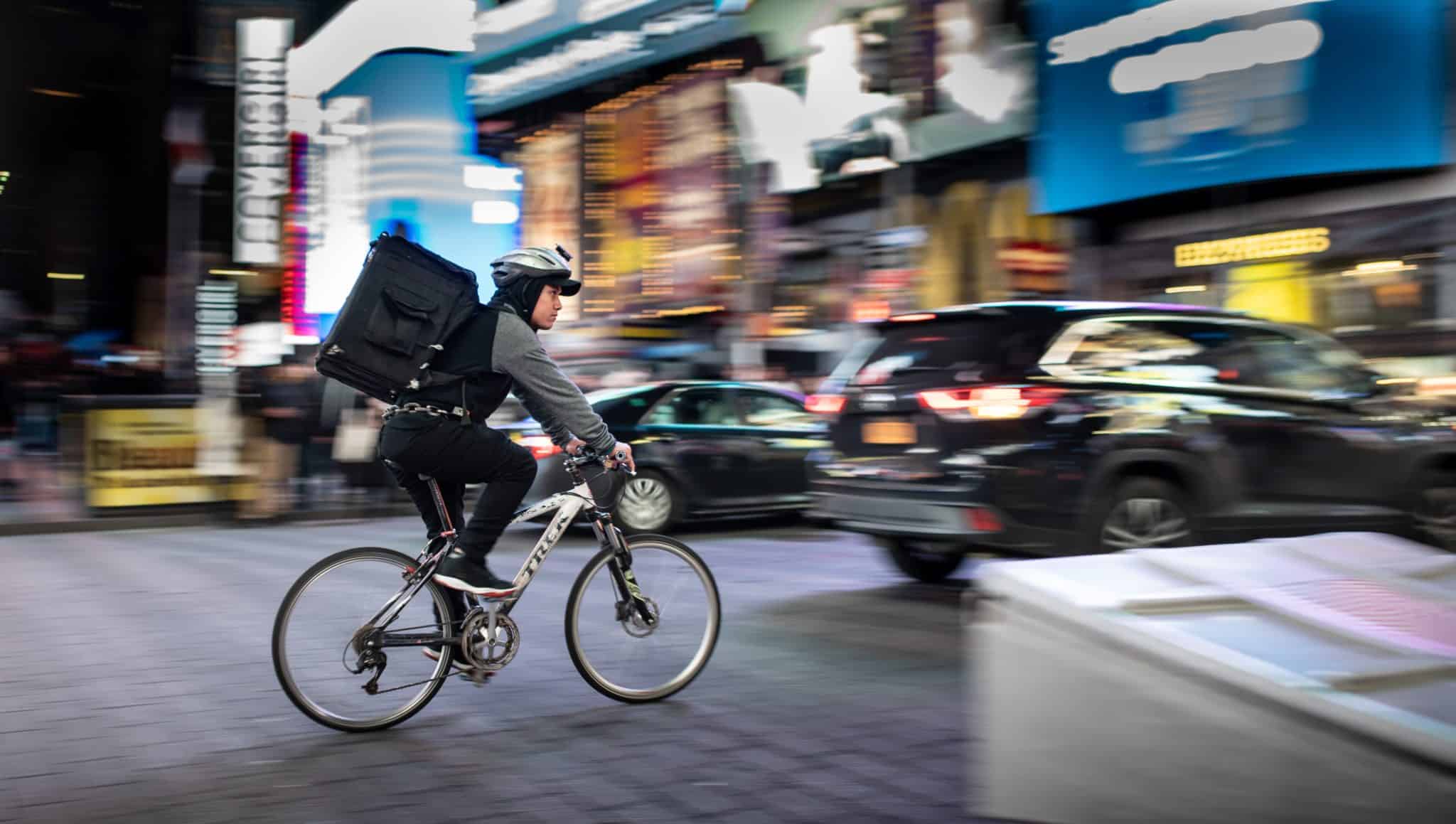Vail Kohnert-Yount is a student at Harvard Law School.
District of Columbia Attorney General Karl Racine announced today that his office is suing food delivery service DoorDash for deceiving consumers by taking tips from food delivery workers. “DoorDash misled consumers, who reasonably believed that their tips would go to workers, not the company’s bottom line,” said Racine. Five months after the office began its investigation, DoorDash explained that it would change its tipping practices, promoting it as a raise for drivers without paying back any of the tips it took under its previous policy. With this lawsuit, the DC Attorney General is seeking to force DoorDash to surrender these tips and pay civil penalties for violating DC’s consumer protection law.
“Increasing numbers of people in mission- and passion-driven fields are waking up to the fact that they are, despite the trappings of middle-class-ness, still workers doing a job,” wrote Sarah Jaffe at The Progressive. In recent weeks, staff at the Southern Poverty Law Center and the National Center for Transgender Equality have taken action in response to their employers’ refusal to voluntarily recognize their unionization efforts. A supermajority of SPLC staff signed union authorization cards before filing an NLRB election petition, and NCTE staff filed a complaint against the organization alleging retaliation after it fired all workers in their bargaining unit. The NCTE staff union’s press release noted, “Ironically, organizing a union and negotiating a contract that prohibits discrimination based on gender identity is the only way for transgender workers to have explicit legal protections in the workplace in over half the country.”
Vice investigated the emerging “platform cooperativism” movement, as worker-owned apps are increasingly providing alternatives to widespread exploitation in the gig economy. The worker-owners of Up & Go, a home cleaning app in New York City, are primarily immigrant women from Latin America. Up & Go cleaners earn $25 per hour, more than double what workers typically earned on their own or through other services. “On other apps, the owners set your wages, but we set our own wages,” said worker-owner Esmeralda Flores. Examples from other countries include Mensakas, a worker-owned delivery app started by two former Deliveroo food couriers in Spain; CoopCycle, a federation of bike delivery co-ops in 16 European cities; and Eva, an alternative to Lyft and Uber in Montreal.






Daily News & Commentary
Start your day with our roundup of the latest labor developments. See all
September 12
Zohran Mamdani calls on FIFA to end dynamic pricing for the World Cup; the San Francisco Office of Labor Standards Enforcement opens a probe into Scale AI’s labor practices; and union members organize immigration defense trainings.
September 11
California rideshare deal advances; Boeing reaches tentative agreement with union; FTC scrutinizes healthcare noncompetes.
September 10
A federal judge denies a motion by the Trump Administration to dismiss a lawsuit led by the American Federation of Government Employees against President Trump for his mass layoffs of federal workers; the Supreme Court grants a stay on a federal district court order that originally barred ICE agents from questioning and detaining individuals based on their presence at a particular location, the type of work they do, their race or ethnicity, and their accent while speaking English or Spanish; and a hospital seeks to limit OSHA's ability to cite employers for failing to halt workplace violence without a specific regulation in place.
September 9
Ninth Circuit revives Trader Joe’s lawsuit against employee union; new bill aims to make striking workers eligible for benefits; university lecturer who praised Hitler gets another chance at First Amendment claims.
September 8
DC Circuit to rule on deference to NLRB, more vaccine exemption cases, Senate considers ban on forced arbitration for age discrimination claims.
September 7
Another weak jobs report, the Trump Administration's refusal to arbitrate with federal workers, and a district court judge's order on the constitutionality of the Laken-Riley Act.